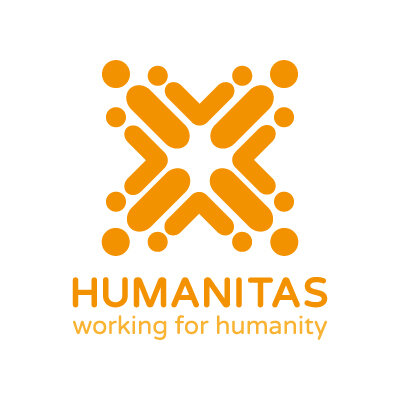Refugee Crisis-Croatia, Serbia border...
Written by Michael Armstrong, Humanitas volunteer
When I arrived in Bapsk on the Croatian, Serbian border I was overwhelmed by the sheer volume of people gathered there. The police formed a human barrier so that no one was allowed to pass! There were around 10,000 people, cold, hungry and thirsty, often hypothermic or in pain from walking and having to live on the road for so long. No information whatsoever was exchanged, no translators were present and no signs or directions were in place. The look of fear and confusion across the refugees’ faces was clear to see. They were scared, uncertain of where they were, of where they were going and of what their future held. Once in a while, the police would open a gap in their line and aggressively jostle a sizeable amount of people through, and force them onto buses that transported them to the overpopulated and under-equipped Opatovic Refugee Camp. Here, there was no order, no structure or civility. People were herded like cattle, shouted and screamed at. Families were being torn apart in front of my eyes. I saw the desperate look of children, mothers, fathers, siblings and grandparents being given no choice but to leave their loved ones behind. These images will stay with me forever.
The growing crowd pushed forward, frustrated by the lack of information, frightened for their families and fearful of spending another night in freezing temperatures with no food, water, blankets and insufficient clothing. The police, themselves scared of the magnitude of people wanting to pass though, were told by their superiors to restrain the crowds at all costs. My heart pounded as I watched the cries and shouts of the crowd turn into fear and anger. I felt no fear for myself, just the desire to help. In an attempt to remain in control, the police thrust back, barking orders, batons in hand. I saw a policeman - the largest officer on the front line - jab a woman carrying a small child. Instinctively, I grabbed his arm and pulled it down. He grabbed me and pushed me away, yelling at me never to touch him. As his peers looked on, it became clear that his only option to maintain his authoritative status was to bully and threaten. The refugees looked up in shock as they were not used to having anyone fight their corner.
I realised that if I was to gain favour and accomplish my goals, I needed to work with the police, not against them. I needed to befriend them, to appease them. I humbly apologised and offered my hand, which he reluctantly shook. Gently slipping between the police line and the mass of people, I used myself as a human shield. I spoke calmly and slowly to the refugees, trying to explain the little info I had to hand, trying to alleviate some of their fears and pacify the rising tide of unrest. The police let me stay, and the people walking past were happy to see a friendly face for the first time in a long time. A mere five minutes later, in the middle of the crowd, a full-blown fistfight erupts between fifteen Afghanis and Syrians. A melting pot of tension. I radioed Ramiz to come quickly so he could translate in Farsi in an attempt to placate the animosity, but he was in the middle of treating a man with a gunshot to his foot on the Serbian side of the border about one km away. When Ramiz arrived, we waded into the crowd to separate and calm the main antagonists. This is merely a glimpse of our first hour, we worked 20 hours straight that day and night.'





